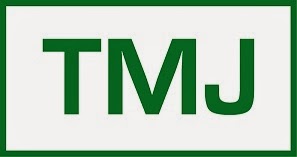In the end, after retiring from finance, the cat was out of the bag. Geraint Anderson, the author, was indeed the former equity research analyst at Societe Generale and Commerzbank. He finally joined Dresdner Kleinwort, where he was a top stock picker two years running. As a star analyst, he has seen the extremes of the glory years, and has overcome his drug addiction and other lifestyle choices to live and tell the tale. It is quite a fantastic tale and worth hearing. You get a sense that it is fiction, but you accept that it all could really be true.
I cannot tell you how many times while reading this I laughed out loud, had to stop, and take a break because it was constantly outrageous, and oh so true. How did such a guy even get into finance in the first place? His brother and connections. When your older brother is a fund manager and he "suggests" to a sell-side client to interview him, he gets the job. All this despite just being back from a hippie tour of India, and not owning a proper suit.
I know many others who dream about finance early on, and study very hard to learn about markets, yet have trouble breaking in. Life can be unfair, but such is in fact life. I think and also wonder what many new MBA types who read this book may learn or refuse to believe. Many parts of the front office are about output, not input as far as education. Even school leavers who "get it" will succeed, while the multiple degree types who lack vision, will still be left behind. At least that was the case until the more recent code kings with algos and AI skills took over.
The work has to get done, and the clients have to be serviced, no excuses. Geraint Anderson, certainly pulls no punches on his behaviour to excess with cocaine and boozing in the pub, but he certainly also warns of the imbalance in finance. There are too many scenes that can only be called hilarious needing full belly laughs. The amount of face time needed to justify your bonus is eye opening for many. It also rings very true when you recognize how close to reality many of these antics are everywhere in financial markets.
The Top 3 Takeaways from this book that impact any reader are:
1) There is no limit to how badly men in finance can drink and treat one another. Hazing culture increases when more cash or cocaine is added.
2) There is no escape from bad habits by your colleagues. Going overboard with excessive drinking while entertaining clients in particular, will be found out no matter how big your P/L.
3) There is a great culture of acceptance of faults within finance. How many times will you wake up wondering why did you do this or that? Typically, it was a good idea at the time, or so your client said. In the end, it is all fun and games if the P/L stays in the black.
This is an easy reading guilty pleasure to enjoy on a train or over the weekend at the beach. It is satisfying mind candy that is very amusing and fills a need to hear about how crazy it has been for some other dealers out there. Money often just magnifies what you are. Just because you have a big bonus, does not mean that you can handle it, or even absorb the delusion of power too many suffer from in many top investment banks. In fact, it can hurt your moral compass when you least expect it. I think the author has made the right move to leave the markets when he did. Not many can get out of the game with such solid timing in real life. This great book is really worth a read and a beer at the same time. Highly recommended!
Please visit us for our Friday Feature Review where TMJ Partners will review books, movies, conferences and anything else with a financial theme. Follow us now for our free weekly updates, just click here. Thank you for reading and learning more about how money is made in finance!
For more Buy-Side and Sell-Side roles in Asia-Pacific, contact our TMJ Partners Japan & Asia Finance team.
Tokyo Tokyo













